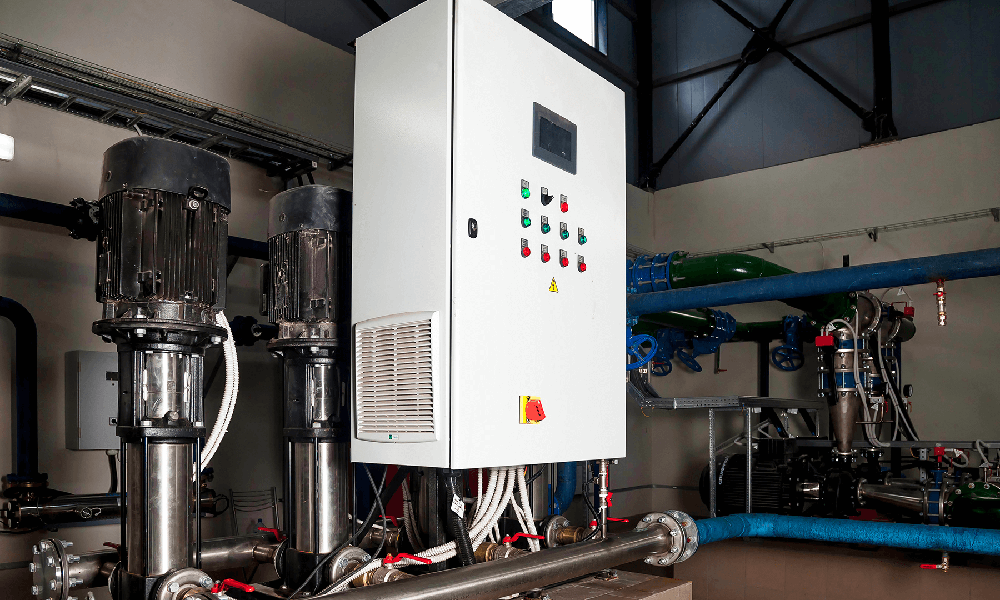Water Pump Problems
Water Pump Problems are another common household issue that can be quite frustrating. Besides causing inconvenience, if a major problem occurs due to pump failure, it can result in low water pressure or the inability to do tasks like laundry or dishwashing. Therefore, it’s essential to regularly inspect and address any issues immediately, as small problems can quickly escalate into significant challenges.
Therefore, we have gathered information on possible water pump issues and provided some basic troubleshooting tips in this article.
“Water pump problems mainly result from what?”
Mostly, water pump problems occur because the water pump is working too hard or beyond its capacity. Prolonged use of the pump can lead to overheating and damage to the motor. This could also be due to the location and installation of the water pump or improper accompanying components that affect the pump’s efficiency. Additionally, wear and tear, as well as external factors that we can’t control, such as power outages or electrical surges, can significantly impact the pump’s operation.
Not to mention external factors that we can’t control, such as power outages or electrical surges, which can have a significant impact on the pump’s operation.

Hot Water Pump Problems
This issue can occur due to various reasons, such as the pump running without water in the system, insufficient water supply, or impellers within the pump rotating in opposite directions, often resulting from a twisted pump. Damaged or faulty parts may also cause this problem. When the hot water pump overheats, the first thing to do is to turn it off to prevent motor burnout. Next, you should open the pump cover or remove whatever is covering the pump to allow heat to dissipate. However, do not pour or spray water on the pump to cool it down, as it can cause a short circuit and may even require you to lift the entire pump to dry it out thoroughly. After allowing the pump to cool down, examine whether there is water flowing into the pump, whether the water tank is empty, or if there are any leaks causing the pump to overwork. If you find that it’s due to a plumbing issue within your home or property, you may need to contact the relevant authorities to address the problem further.
The problem of the pump running continuously without stopping
I wonder why the pump is running even though no one is using it. Besides causing higher water costs due to such a situation, if the problem is not promptly addressed, the next issue that may arise is the pump overheating to the point of burning out. It can be reasonably assumed that there is a water leak inside the house, whether it’s from water pipes or related equipment such as faucets or worn-out seals, or cracked pipes, etc.
The solution is to find the source of the leak, starting with the water pump. First, check if there are any visible leaks around the pump. If not, inspect the pipes, connections, and observe the walls of the house for any signs of swelling, peeling, or discoloration. If you find water stains or swelling, you can reasonably assume that there is a leak in the pipes within the walls of your house. If you don’t find any water stains or swelling, check the points where water is used, such as sinks, dishwashers, faucets, showerheads, and hoses. When you identify the leak, repair it to ensure the pump can work properly again.
The problem of low water flow or a weak water pump
It is a common issue and has many causes, which require time and thorough inspection to determine the reason.
However, the most common cause that occurs frequently is the presence of air or wind in the water pump system. This can be addressed by opening the water pump’s filtration cap, then purging the air by filling it with water until it’s full and then closing the cap as before. But before opening the filtration cap, make sure to disconnect the pump’s plug.
Another common issue that often ranks at the top is the presence of foreign objects in the water pump system. Most commonly, this comes from neglecting the cleanliness of the water tank, such as having sediment, debris, or dirty water that allows dust or other contaminants to clog the pump system. This can be addressed by cleaning the water tank or using a water filter before the water enters the pump to prevent issues from occurring.
How to prevent and avoid water pump issues
You should regularly observe and inspect visible areas to check for water leaks. Make sure the water is properly shut off to prevent the motor from working too hard and potential issues.
Ultimately, whether it’s a household water pump or a large industrial facility, wear and tear due to usage is inevitable. In some cases, resolving these issues may require the expertise of professionals to ensure safety and prevent further damage. Contact us for inspection, maintenance, and repair services.

